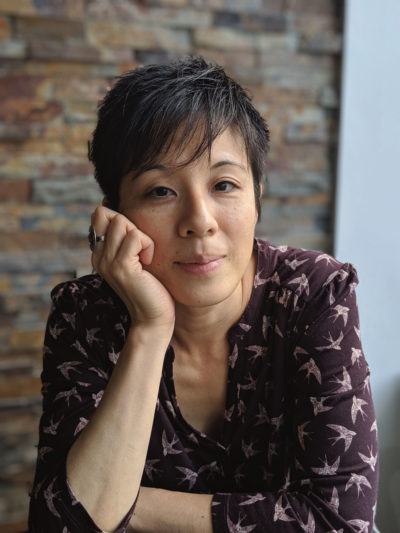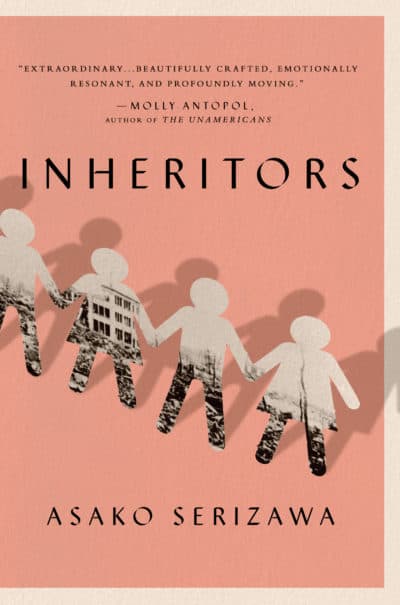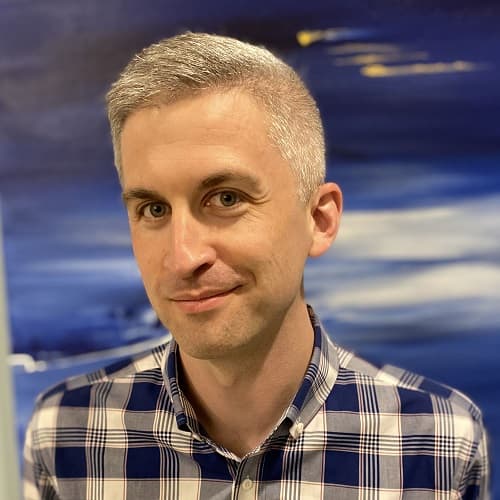Advertisement
Review
Short Story Collection 'Inheritors' Chronicles The Experiences Of A Japanese Family Over Centuries
Asako Serizawa’s debut short story collection, “Inheritors” (out July 14), chronicles the experiences of a family of Japanese descent over the course of the 20th and early 21st centuries. Its broad scope and episodic structure allow Serizawa to quickly shift between exploring the small, emotionally resonant nuances of family relationships and tackling larger, more sweeping themes of identity, racism, colonialism and war.
In this, “Inheritors” recalls Akil Kumarsamy’s 2018 book “Half Gods,” which featured a Sri Lankan Tamil family — particularly in how it examines the long-lasting burdens of Western colonialism and the challenges second-generation Americans face as they try to honor their heritage while also forging their own path in the world.

But Serizawa goes further. She experiments with style, perspective and form, searching for the best way to tell each particular story. Some are presented as interrogations, one-sided interview transcripts, or confessions. And though much of the book is set among the events and aftermath of World War II, the final few stories dare to look into the future at where humanity might end up given our current trajectory.
The emotional core of the book springs out of the events of March 9, 1945, when U.S. bombers firebombed Tokyo, killing more than 100,000 civilians. In “Allegiance,” we meet Masaharu and Masako and learn that their son, Seiji, disappeared that night and is presumed dead. The couple goes on to adopt Masaaki, a Korean orphan whose mother had been enslaved by the Japanese army. They conceal his true heritage; his late-in-life discovery of this leads to the dissolution of his own family and his estrangement from his daughter, Luna.
What might be dubbed the “Masaaki/Seiji” cycle of stories delves deeply into the themes of identity and fate. “You make it sound… as though identity is a choice,” Masaaki says to his white, American soon-to-be ex-wife. “It’s not a choice.” As an adult, Luna struggles to understand why her father’s uncertain past meant more to him than his — and her — future.
Though the other parts of the family tree are less prominently featured, they offer rich insight into aspects of the Japanese experience during the war: Masaharu’s doctor brother is a member of the infamous Unit 731, which tortured helpless captives during the war under the guise of scientific experimentation; his zealous nephew Yasushi mans a kaiten (or human torpedo) — the naval equivalent of a kamikaze; his sister Ayumi emigrates to America before the war and gets to see its effects from the other side of the Pacific; his mother, Masako, becomes a sex worker to support her family during the American occupation.
Throughout the book, Serizawa introduces meditations on communism, capitalism, nationalism, imperialism, democracy and the deep-seated hypocrisies that fuel inequality, exploitation and conflict around the world. These threads, though often invisible to the characters, nonetheless bind and constrict them, forcing them into choices they believe they are adopting of their own free will. And this seems to be Serizawa’s point: That we inherit more than just our genes and our habits from our forebears. We inherit the whole world they created, and it comes to us with strings attached.

“The Garden,” set in the year 2035, drives this point home. Without the aid of the historical record, Serizawa stumbles a bit. Her attempt at building out the world of the near future reads a little thin compared to the detailed environments of her more grounded, period-set pieces. But what the story lacks in depth, it makes up for in prescience, especially in light of our experiences with COVID-19.
“Most corporate buildings were dead,” she writes, “fluorescent offices having reached near obsolescence in a world gone online, with the few remaining factories, largely automated, overseen by fewer and fewer people… the darkening museum of downtown.”
In the story, Luna’s son Erin is the creator of a sophisticated computer environment designed to model the catastrophic effects of the changed climate. He is not optimistic about humanity’s future, recognizing that the seeds of our future destruction were sewn decades, perhaps even centuries earlier. But it’s a truth few are willing to reckon with. “And more than anything, it was this — the progressive erasure and dismissal of history — that foretold for him humanity’s eventual disappearance.”
History is flattened into a one-dimensional story. There are good guys and bad guys and the arc of history, we are told, bends toward justice. Progress is inevitable. “We’ve all come to rely on this history,” says one character, ruefully. “It’s the perfect narrative.” But the truth is more complicated, and in her stories, Serizawa highlights the dialectic at work: how there are no purely “good” guys or “bad” guys; how the liberator and the oppressor can be one in the same; how a colonizer can be colonized; and how the distinction between the past and the present is thinner than we want to admit.
